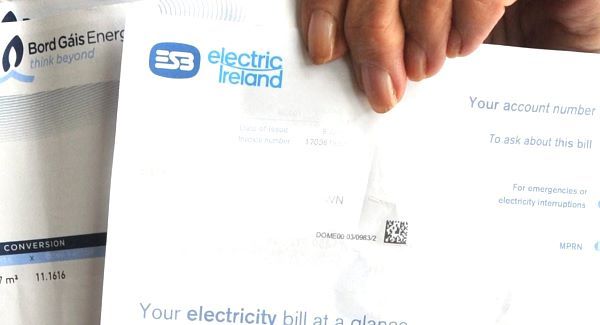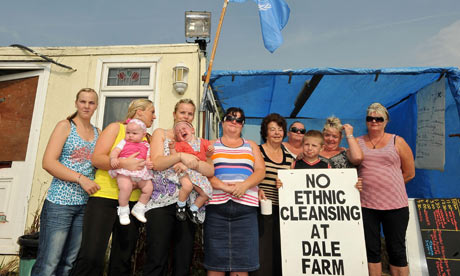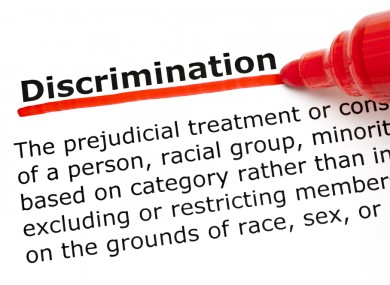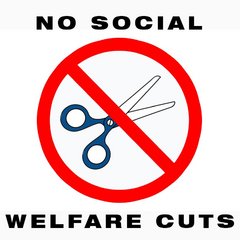HOUSE RULES FOR IRISH FAMILIES IN DEBT


The average Irish family will be left with €1,760 a month to live on under new rules outlining what should be considered reasonable living expenses for people in mortgage distress.
Debtors may be asked to move to cheaper accommodation, give up their cars and health insurance, and prove the economic rationale for childcare arrangements under the guidelines for personal insolvency arrangements.
They were given a cautious welcome by advocacy groups, who hoped the rules would re-balance the current one- sided approach of banks’ dealings with customers in arrears.
However, there remained some concern that they leave too much power in the hands of the banks — who will not be compelled to enter arrangements and will have a final veto on any deals.
Anybody entering the arrangements will be subject to strict spending guidelines which the Insolvency Service of Ireland said will be fair, and not draconian.
They will allow:
– €278 a month for food for an adult and €72 for a pre-school child;
– €33 a month for personal hygiene and grooming including hairdressers;
– €35 per month on clothing and footwear and €22 for a pre-school child;
– €48 a month for electricity and €57 for heating.
Under the new arrangements, a family will only be allowed to keep its car if it is necessary to get to work and no public transport is available.
The personal insolvency practitioners (PIPs) — or government- appointed mediators — can dictate what type of car is needed, based on a family’s needs, which will be cheaper than €2,000.
They will also decide the hours, location, and type of childcare that working parents can pay for.
A controversial clause in the initial draft guidelines which allowed banks to force parents to give up work if childcare cost more than they earned has been removed.
However, the final version still states that “the reasonableness” of childcare can be considered, and parents will have to prove an economic rationale for paying for it.
Private health insurance will not be allowed, unless the debtor has a particular health condition which would result in spending that costs more than insurance.
It will also be allowed for people with medical conditions that “would make it difficult or impossible to regain insurance cover” when they emerge from the insolvency arrangement.
However — in another last- minute tweaking of the guidelines — people will be allowed to keep their Sky Sports subscriptions.
Sinn Féin said the guidelines “condemn people to live for years hand to mouth because the banks have been so irresponsible with lending”.
Fianna Fáil described them as a bankers’ charter that will “provide little comfort to families crippled by debt”.
But the Justice Minister Alan Shatter said he would keep a “watchful eye” on the banks and would “swiftly intervene” if the process was not working.
“We expect them to do what they have said they are going to do and to properly and fully and constructively engage with people who are in debt difficulties,” he said.
The Free Legal Advice Centre, Flac, said that up to now, banks have been pressing people beyond acceptable limits: “This legislation is badly needed for those who are insolvent and need a proper process to resolve their indebtedness.”
Irish Travellers ‘excluded’ from the labour work force
Council of Europe finds widespread discrimination


Urgent measures need to be taken to address the de facto exclusion of members of the Travelling community in Ireland from the labour market, the Council of Europe has warned.
In a report on Ireland’s implementation of the European treaty on the protection of national minorities, the human rights watchdog found that members of the Travelling community continue to experience discrimination in accessing the labour market and health services in Ireland.
It found despite the “positive developments and the general climate of dialogue existing in Irish society”, towards the Travelling community, Travellers face discrimination accessing health, education and accommodation.
It noted that a large number of Travellers remain unemployed, citing data from the 2006 Census which revealed a 75 per cent unemployment rate for Travellers compared to 9 per cent generally. “The main reasons for this deplorable situation, identified by the Travellers themselves, are discriminatory practices and social exclusion leading to low self-esteem and poor performance in education,” the report states.
Similarly, the school drop-out rate for children aged 15 from the travelling community according to the 2006 census stood at 63.2 per cent, compared to 13.3 per cent nationally, while participation of travellers in higher education was 0.8 per cent, compared to 30.2 per cent of the national population.
While Ireland does not recognise Travellers as a national minority, the report welcomed the fact that Irish authorities had introduced measures to recognise the community’s special position in society and to better protect their rights.
However, it highlighted the persistence of negative stereotypes regarding the community in some written press and electronic media, in particular with regard to criminality, abuse of social benefits and nomadism.
Noting that political representation at both local and national level remains very low, the report added that the various Traveller representative bodies that have been set up remain purely advisory with no decision-making powers. It also described the absence of any Roma representatives from the various Traveller committees that have been established by the State since 2007 as “regrettable”.
In addition, the Council of Europe urged Irish authorities to “finalise the consideration of the proposed recognition of travellers as an ethnic minority”. Responding to the Council of Europe report yesterday, the Government said that “consideration of this issue remains ongoing”, noting that all the protections afforded to ethnic minorities in EU directives and international conventions apply to Travellers in Ireland.
It added that the Bill to establish the Irish Human Rights and Equality Commissionwill be published and presented to the Oireachtas shortly.
The Government also pointed out that significant progress had been achieved in the delivery of Traveller accommodation, including Traveller-specific accommodation, since the enactment of the Housing (Traveller Accommodation) Act 1998.
MINISTER JOAN BURTON REFUSES TO RULE OUT REDUCTION IN SOCIAL WELFARE CUTS


Minister for Social Protection Minister Joan Burton has said any possible easing of austerity measures is going to be a roundtable discussion.
It follows comments by EU Commissioner Ollie Rehn at the G20 in Washington yesterday that Europe will ease austerity in a bid to accelerate growth.
Speaking at a Saint Vincent De Paul conference in Dublin today, Minister Burton refused to rule out seeking a reduction in her own Department’s targeted spending cuts.
Reports during the week suggested that she would seek a reduction in the €440m target set for social welfare cutbacks in October’s budget.
However, the Labour Minister did say the Troika now acknowledges that they got their original approach to austerity wrong.
Ms Burton said: “They got the calculation of the impact of the cuts in expenditure wrong.
“There was an economic model which they said, with some confidence, would produce growth, but it hasn’t produced growth to the level that they estimated.
“In fairness to the IMF they have been very intellectually honest about that.”
Up to 200,000 sleep apnea sufferers, A conference in Galway was told
As much as 100,000 people in Ireland suffer from sleep apnea – but the true figure could be twice that, a conference in Galway was told today.
An expert on the disorder told delegates at the annual conference of the Irish Dental Association that 90% of those who suffer from sleep apnea are undiagnosed.
Sleep apnea occurs when the airway collapses and there is a cessation of airflow for 10 seconds. If this happens constantly during the night every night it prevents the person getting the deep sleep required to function normally.
“Overall we believe the condition affects between 2.5 and 4% of the population but because most people who suffer from it remain undiagnosed that figure may be a little on the conservative side,” said Dr Michael McWeeney, Consultant Respiratory Physician in Galway Clinic and Bon Secours Hospital.
“We are in an obesity epidemic and that increases the severity of apnea. Poor muscle tone and alcohol consumption also increase the risk substantially. What we really want to do is raise awareness of the condition not just among the general population but also among health providers such as doctors and dentists.”
More than 40,000 apply for one-way ticket to Mars


It seems that there has been huge interest in signing up to sampling life on Mars in ten years, even though it is a one way ticket.
Mars One — a plan to colonise Mars in stages, with the first humans arriving in 2023, won’t begin accepting 60-second video applications until July, but already more than 40,000 applications have applied for the unique journey.
Heading off to the Red Planet for good wouldn’t be our cup of tea, but it has spiked the interest right across the globe. Mars One will largely be financed through an application fee of up to $25 and a global reality TV show that will help vet the candidates.
Dutch physicist Gerard Hooft told the New Scientist magazine that the interest levels so far have surpassed what they had anticipated.
“This is many more than I had imagined, although some psychologists and cultural anthropologists had apparently predicted there would be at least a million candidates,” he said.


No comments:
Post a Comment